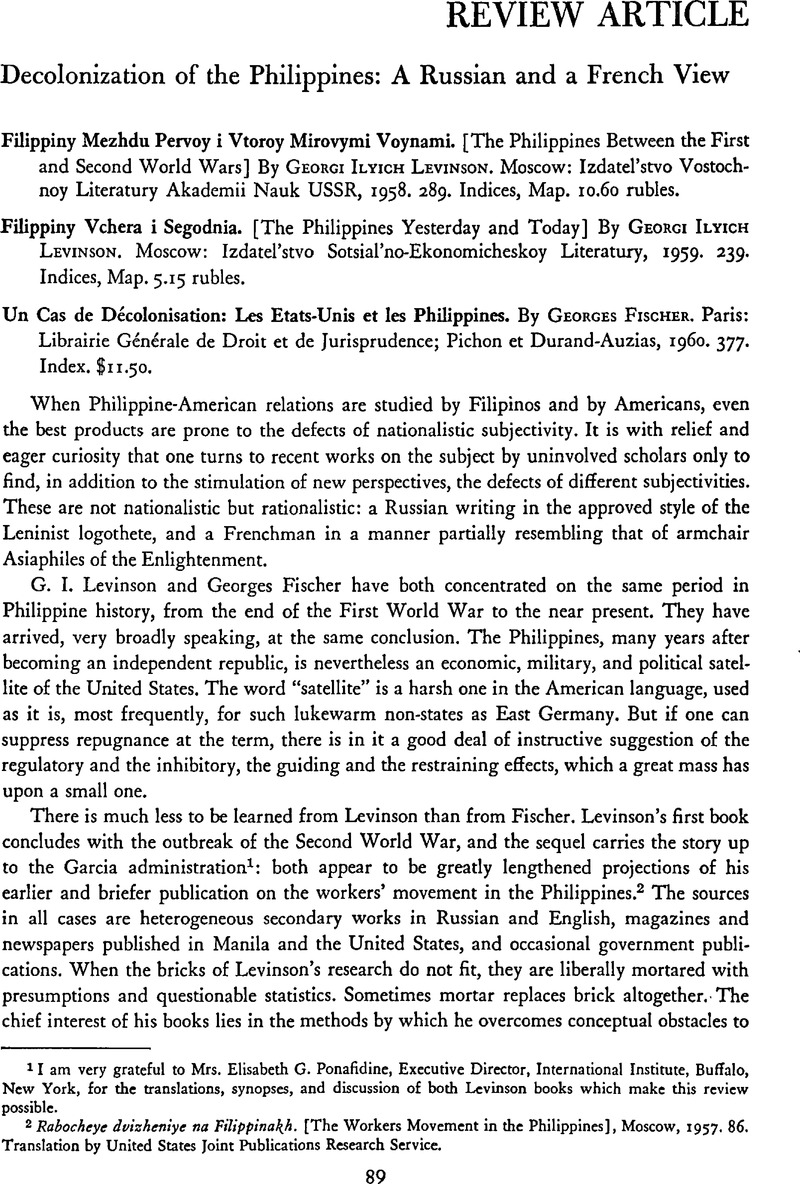No CrossRef data available.
Published online by Cambridge University Press: 23 March 2011

1 I am very grateful to Mrs. Elisabeth G. Ponafidine, Executive Director, International Institute, Buffalo, New York, for the translations, synopses, and discussion of both Levinson books which make this review possible.
2 Rabochcye dvizheniye na Filippinakh. [The Workers Movement in the Philippines], Moscow, 1957. 86Google Scholar. Translation by United States Joint Publications Research Service.
3 In citations, “I” refers to Filippiny Mezhdu Pervoy i Vtoroy Miravymi Voynami, and “II” refers to Filippiny Vchera i Segodnia.
4 Presumably he is the same G. Levinson who contributed “Two Trends of the National Bourgeoisie” to World Marxist Review, II (09 1959), 76–77Google Scholar. The writer there describes “reactionary” and “progressive” trends among bourgeoisie of all underdeveloped countries, but says the contest of trends “does not erase from the agenda the slogan for a united anti-imperialist front of the working class, peasantry, and national bourgeoisie.”